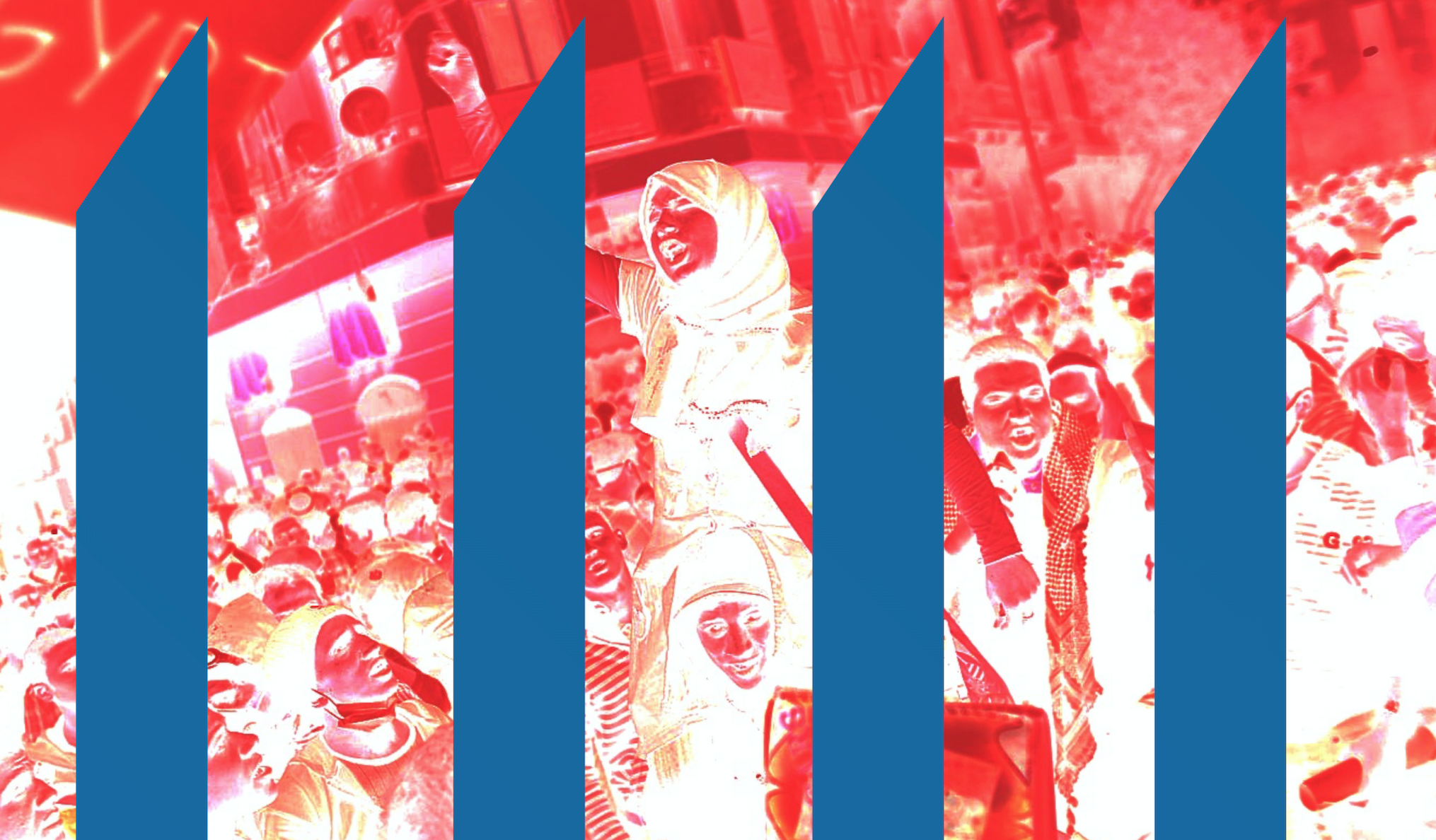
Egypt: A New Revolution?
MANUEL D’ELIA
COMMENTARY #12 • OCTOBER 2019
One of the leading countries of the Arab springs broken out at the end of 2010 is againin turmoil. Since the Egyptian entrepreneur in exile Muhammad ‘Ali made an appeal to gather his compatriots in a protest against the alleged corruption in the governmental apparatus, Egypt is going through a new season of uncertainty.
On the 20th of September, hundreds of people gathered in piazza Tahrir in Cairo, a symbol of the Arab spring, asking for al-Sisi resignation, triggering a harsh crackdown that has led to more than two thousandsarrests[1]. The country is now strictly presided by police and the army. The regime of the general al-Sisi came to power in 2013, after the deposition of Muhammad Morsi, implementing a strong police control system that should ensure the solidness of the Egyptian political system. However, the videos released on the internet by Muhammad ‘Ali[2], through which he accused the raisand the army of wasting public money on luxury goods and illegal traffics, lit the fuse of the protest that initially the government has not been able to control. Ali worked for a long time in close touch with the military establishment, consequently he boasts the knowledge of sensitive intel. Nevertheless, the regime’s reaction has been tough. Besides the interdiction of social networks and over 500 websites, a great wave of arrests hit several journalists, academics, human rights activists and leaders of opposition parties, including some minors, accused of spreading fake news and colluding with terrorist organizations[3].
The recent protests did not concern only the government corruption but also the economic situation in Egypt, which is experiencing a merely abstract economic growth. Although the macroeconomic indicators show a GDP growth of +5,5% and a decrease of the unemployment rate, in practice the 32,5% ofpopulationlives below the povertylines[4] and currently there are no optimistic expectations of upcoming efficient income redistribution. In the last few years, the government carried out austerity policies resulting in the drastic cut of subsidies and the cost of living increase, which especially stroke the most disadvantaged sections of the population. In a contest of economic hardship, the allegations of corruption addressed to the regime have rekindled the ashes of the riot. The youngest sectors of Egyptian society are the most exasperated for the lack of perspective and the political agenda of the government, which does not show any interest in them.
Despite the large-scale mobilization and the difficulties encountered by the government to quell it, it is hard to believe that such protests could undermine the stability of the regime. The government led by al-Sisi is an expression of the military power in the country; a strength that can not be scratched by occasional protests, as much as participated. After all, the riot that ended Mubarak’s government in 2011 was the result of a long period of great and multifaceted social mobilization[5]. Moreover, the regime efficiently represses the opposition forces and other forms of dissent. At present, Egypt ranks 12th in the world in terms of military strength in 2019, according to Global Firepower (GFP)[6]. Its army represents 50% of the state’s economy, and in addition to the economic power, it also holds political power. Therefore, only the army could modify the current balance of power. On the basisof theprivilegedposition held by the army in the Egyptian pyramid of power, and the not encouraging prospects for economic growth, undoubtedly the military chiefs want to avoid a return to chaos. Furthermore, the stability of the regime is guaranteed by the amendment of the Constitution that occurred in April, which removed the limit of two presidential terms and gave to the President a large power of control over the media, the Intelligence Service and the judicialsystem[7].
On the other hand, the international community has shown indifference about the protest and the following crackdown. Its role of barrier to the expansion of Islamic fundamentalism and its closeness to Europe and Libya allow Egypt to enjoy a key position in the Middle East chessboard. As a result, the governments do not believe it would be a wise decision to foster any phenomenon that could destabilize the country.
[1]Vivian Yeeand Nada Rashwan, “Egypt’s Harsh Crackdown Quashes Protest Movement”, TheNew York Times, October 4, 2019. Available at: https://www.nytimes.com/2019/10/04/world/middleeast/egypt-protest-sisi-arrests.html
[2]Joana Saba, “Mohamed Ali: The self-exiled Egyptian sparking protests at home”, BBC news, September 24, 2019. Availableat: https://www.bbc.com/news/world-middle-east-49800212
[3](Staff writer), “Egitto, in atto la più ampia ondata di arresti di massa dall’arrivo al potere di Al-Sisi”, La Repubblica, October 7, 2019. Available at: https://www.repubblica.it/solidarieta/diritti-umani/2019/10/07/news/egitto-237925892/?refresh_ce
[4]Capmas, Income & Expenditure Search Bulletin Date, luglio 2019.
[5]The Editors of Encyclopaedia Britannica, “Egypt uprising of 2011”, Encyclopaedia Britannica. Available at: https://www.britannica.com/event/Egypt-Uprising-of-2011#ref299612
[6]Statistics by Global Fire Power. Available at: https://www.globalfirepower.com/country-military-strength-detail.asp?country_id=egypt
[7]Giuseppe Dentice, “Referendum in Egitto: al-Sisi verso la presidenza a vita”, ISPI. Available at: https://www.ispionline.it/it/pubblicazione/referendum-egitto-al-sisi-verso-la-presidenza-vita-22920